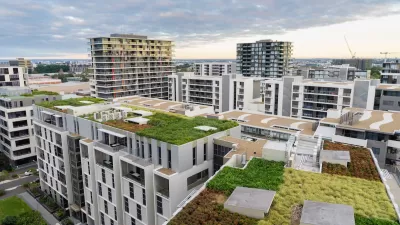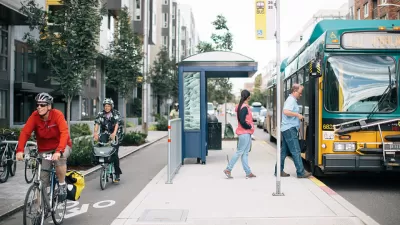New research from the University of Connecticut shows that on-street parking is a key ingredient in a vibrant and pedestrian-friendly downtown.
Norman W. Garrick, an associate professor of civil and environmental engineering and director of the Center for Transportation and Urban Planning at the University of Connecticut, along with Phd Candidate Wesley Marshall, released new findings demonstrating the important role of street parking in creating a healthy downtown environment.
"In order to address this dichotomy between conventional practice and emerging urban theory, we at the University of Connecticut designed two studies of on-street parking and its impact on downtowns.
What we found through these studies was that on-street parking plays a crucial role in benefiting activity centers on numerous levels. Here are some of the main benefits.
• Higher efficiency: Users of the downtowns consistently selected on-street parking spaces over off-street surface lots and garage parking. The on-street spaces experienced the most use and the highest turnover.
• Better land use: Using the curbside for parking saves considerable amounts of land from life as an off-street surface parking lot. Medium-sized town centers can save an average of more than two acres of land by providing street parking. This efficiency can allow for much higher-density commercial development than is possible if the center relies solely on off-street surface lots.
• Increased safety: We showed conclusively that drivers tended to travel at significantly slower speeds in the presence of features such as on-street parking and small building setbacks. Slower vehicle speeds provide pedestrians, cyclists and drivers more time to react, and when a crash does occur, the chance of it being life-threatening is greatly reduced. In short, on-street parking can help to create a safer environment."
FULL STORY: What Street Parking Can Do For Downtowns

Maui's Vacation Rental Debate Turns Ugly
Verbal attacks, misinformation campaigns and fistfights plague a high-stakes debate to convert thousands of vacation rentals into long-term housing.

Planetizen Federal Action Tracker
A weekly monitor of how Trump’s orders and actions are impacting planners and planning in America.

In Urban Planning, AI Prompting Could be the New Design Thinking
Creativity has long been key to great urban design. What if we see AI as our new creative partner?

King County Supportive Housing Program Offers Hope for Unhoused Residents
The county is taking a ‘Housing First’ approach that prioritizes getting people into housing, then offering wraparound supportive services.

Researchers Use AI to Get Clearer Picture of US Housing
Analysts are using artificial intelligence to supercharge their research by allowing them to comb through data faster. Though these AI tools can be error prone, they save time and housing researchers are optimistic about the future.

Making Shared Micromobility More Inclusive
Cities and shared mobility system operators can do more to include people with disabilities in planning and operations, per a new report.
Urban Design for Planners 1: Software Tools
This six-course series explores essential urban design concepts using open source software and equips planners with the tools they need to participate fully in the urban design process.
Planning for Universal Design
Learn the tools for implementing Universal Design in planning regulations.
planning NEXT
Appalachian Highlands Housing Partners
Mpact (founded as Rail~Volution)
City of Camden Redevelopment Agency
City of Astoria
City of Portland
City of Laramie





























